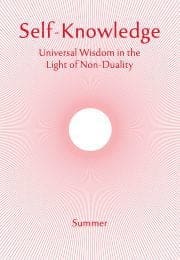Being True to One’s Higher Self
Never was there a time when the Self (Atman) did not exist, nor will it ever cease to exist in the future. The Self pervades all and is indestructible. It is above birth and death. It does not come into being. It is unborn, changeless, all-pervading, ever-fixed, eternal is the Self. Bhagavad Gita
The saying ‘To thine own self be true’ has many levels of meaning. It can, for example, refer to our sincerity or earnestness when we express ourselves. Instead of resorting to pretence or hypocrisy, ‘to be true to our self’ suggests that if we are not happy about something, we should say so, and not give the impression that we think all is well.
And yet, such a course is not always as easy as it might look, nor is it necessarily desirable in all circumstances. Our passing feelings are not always reliable and wise, and some feelings, like greed or anger, if expressed, usually lead to further problems.
Another dimension of the saying: ‘To thine own self be true’, relates to the view that human nature is fundamentally good—and if we remain inwardly sensitive to what might be called ‘our good side’, then we cannot fail to say and do the right thing. This idea is reflected in the teaching of the Chinese sage, Confucius. He was asked what makes a person superior. He replied: ‘Being without anxiety or fear.’ He added: ‘When we examine our inner state, and find nothing wrong, what is there to be anxious about, what is there to fear?’
Such teachings refer to our personality, but they do not necessarily provide hope or comfort. For it is probable that few of us can look into our own mind and find nothing wrong. Even if we do believe that we are morally sound, and insist on our honesty or humility, can we really be sure that we are not deceiving ourselves?
If we consult the non-dual teachings, we find that the whole question of Self-knowledge is approached from another stand-point. This is because a radically different idea of Self is brought to our attention. This is reflected in the opening quotations from the Bhagavad Gita. Here we encounter a deeper view of Self which really does point to a realm beyond suffering, limitation and fear.
Subscribe or enrol for free guest access to read all of this article and Self-Knowledge online.
Already subscribed or enrolled? Log in:


